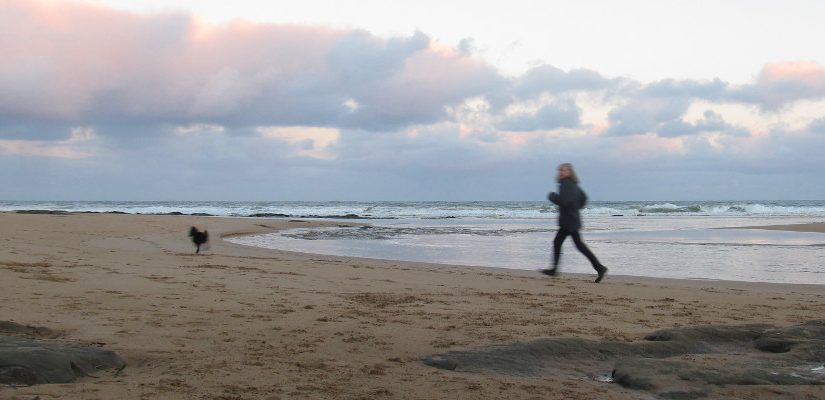On our path from hunter-gatherer to modern human we have lost something rather important. It’s a bit ironic since everything we have gained – housing and heating, food security, career opportunities and global connectivity – should be proof that our quality of life is phenomenally better than that of our forebears. But what many of us have lost or will lose at some stage in their life is a sense of happiness.
Anxiety and depression are widespread in modern societies as we worry about financial wealth and personal relationships. Our brains are constantly busy figuring out how to improve our lives according to the standards our societies dictate. We live and work predominantly indoors, eat food we don’t know where and how it was produced and exercise in indoor gyms, if at all. We take pills because our bodies don’t get enough sunlight and our minds never stop wanting and worrying.
It is bad enough that we have created a world where so many humans are set up to “fail” but we went even further than that: We dragged other species into this mess, in particular our domestic dogs. Because they share their lives so closely with us, we have assimilated them into the modern human collective. It wasn’t intentional of course, just like we didn’t intentionally make our own lives so stressful. It just happened.
By now we should have realised though how assessing dog behaviour by human values and aspirations can only lead to drama. Their hunter-scavengers brains are geared towards an immediate-return value system similar to the workings of our ancient hunter-gatherer brains (which still lurk underneath our complex modern ‘circuitry’). Dogs don’t plan for the future, they don’t scheme or analyse and they don’t worry about things like money or power. When your dog stands on your feet while you are chopping food in the kitchen, it’s for the simple reason that they have learned to associate the smell of food or you being in the kitchen with being fed. To describe this behaviour as controlling, dominant or even manipulative shows just how much we believe our dogs think like we do.
How much better would life be – for us and our dogs – if we turned this around and thought a bit more like our dogs think? To not worry about the possibility of losing stuff or never having enough but to enjoy the here and now; to not try to control everything or everyone in our lives but to seek out what or who can add happiness to our lives; to not make assumptions about what other people – let alone animals – think or intend to do but to respond to what they actually do.
When we spend time with our dogs, we have the chance to forget about our daily worries and commitments for a little while. On a walk we could take in the sights, sounds and smells like our dogs do instead of dwelling on real or imagined problems or communicating with our mobile phones. Playing games with our dogs allows us to be silly and spontaneous but also to show teamwork. We can watch our dogs and try to understand the world a little better from their view. We can find a connection at a level that we both share: The joys of being here right now and being able to capture and value a moment with whatever senses we have.
Easier said than done, right? Modern human existence can be complicated, to say the least, and it’s easy to feel overwhelmed, trapped or powerless. We can have the best intentions but then life throws another brick at us or depression sucks us into a black hole. Or maybe we are simply too busy to even realise what’s missing from our life. We pack our days with work and social activities, rush from here to there in order to feel a sense of achievement and suddenly middle age smacks us in the face and announces the passing of time. And no matter how much we think we have achieved, nothing can replace the time lost living.
Our dogs can help. They can teach us how to treasure moments that give us so much but don’t cost anything. Like the smell of rain or the taste of the sea or the feeling of sand under our feet. Instead of adding another stressor to our lives by trying to wield total control over our dogs and obsess about their obedience and docile behaviour, we can allow ourselves to be infected by their careless and opportunistic nature and gain some much needed relief from being a 21st century human.
Time for a walk.
 Copyright secured by Digiprove © 2016 Sylvie Martin
Copyright secured by Digiprove © 2016 Sylvie Martin 
